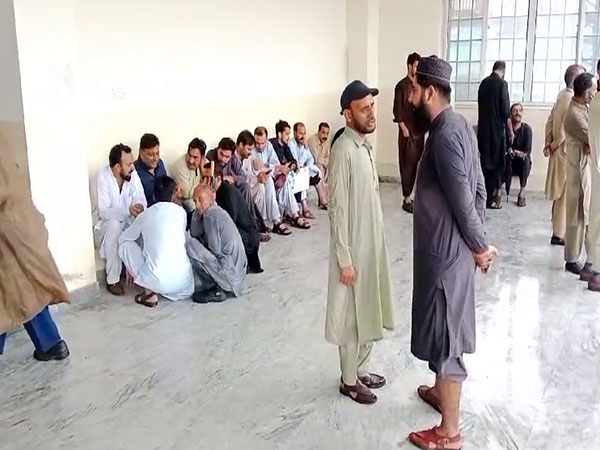Muzaffarabad: The core committee of employees working on an ad-hoc basis in different departments across Pakistan-occupied Jammu and Kashmir’s Muzaffarabad held a protest outside the Central Press Club.
The demonstrators displayed placards and banners with various slogans demanding the release of their salaries. They reported that the suspension of their salaries over the question of merit has led to children being expelled from schools and severe financial difficulties at home.
The protesters also stated that, while employees in other parts of Pakistan have been granted permanent positions, those in PoJK are facing unemployment due to the government’s failure to address their plight.
“We were also hired here based on merit, and we did not receive our employment letters from home. As per the constitution and the law, we were employed according to our qualifications. So, how is it possible that after so many years, people are now claiming that we were hired against merit? Everywhere in the world, both qualifications and experience are valued. But in our region, experience holds no importance. For those who have been doing excellent work for many years, questioning their merit and dismissing them seems to me an injustice and unfair,” said Maqsood Ahmed Abbasi, a protesting lecturer.
According to reports, in the year 2021, the PoJK assembly enacted a law to regularise the employment status of specific categories of contractual, ad-hoc, or temporary government workers. However, protests rose due to the government’s failure to enforce this legislation, highlighting significant frustration among the affected employees.
An affected employee Raja Akhter Ali Khan said, “From 1991 to the present day, various governments have made appointments according to their own preferences. There are people here with 30 to 35 years of experience, some of whom have passed away, and others who are over 60 years old. Considering this situation and the laws enacted in all four provinces, an act was established in 2021. We want that act to be implemented.”
The problem of ad-hoc employment in regions such as PoJK is a long-standing and contentious issue. Ad-hoc employees, hired temporarily without permanent contracts, face job insecurity and often receive lower wages than permanent staff despite performing similar duties. The lack of progress in resolving these issues has led to protests and advocacy efforts by the affected employees.




















